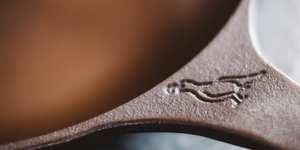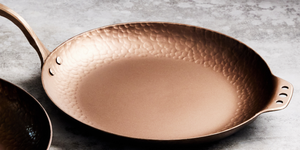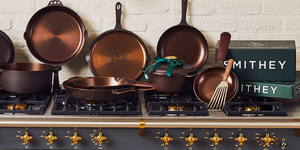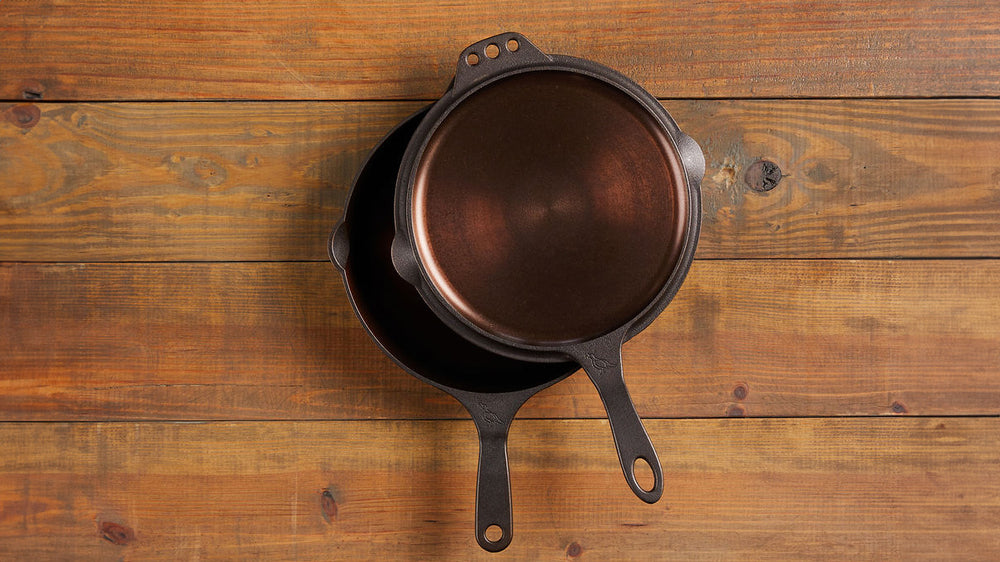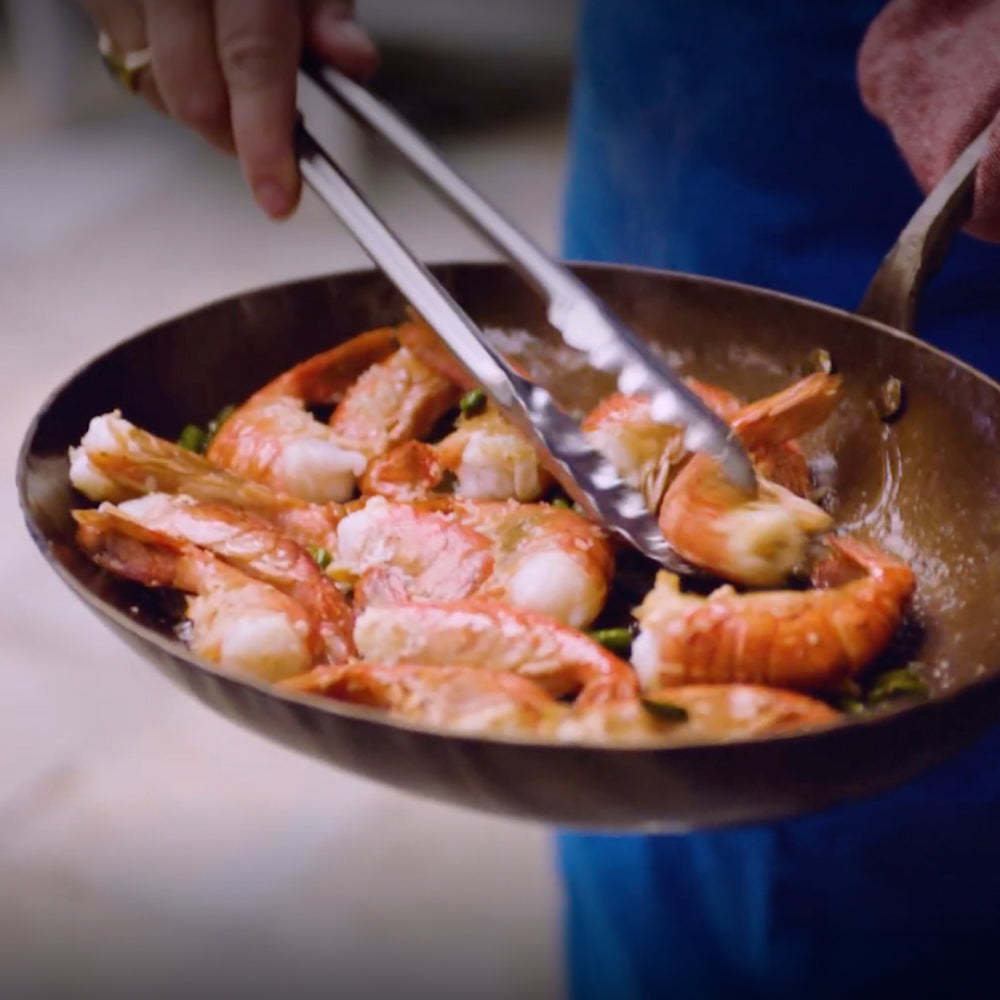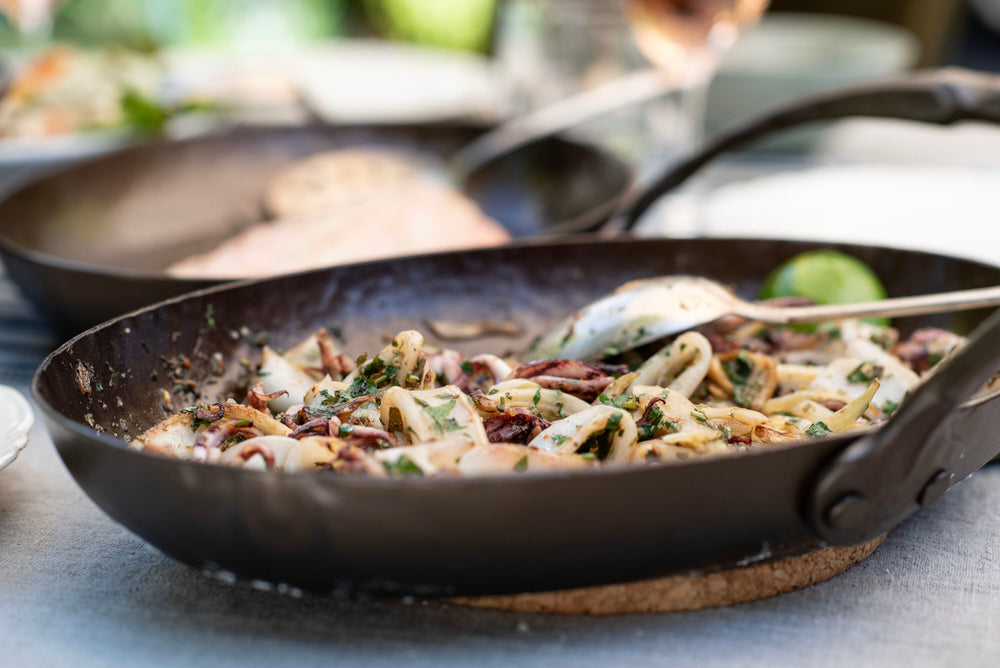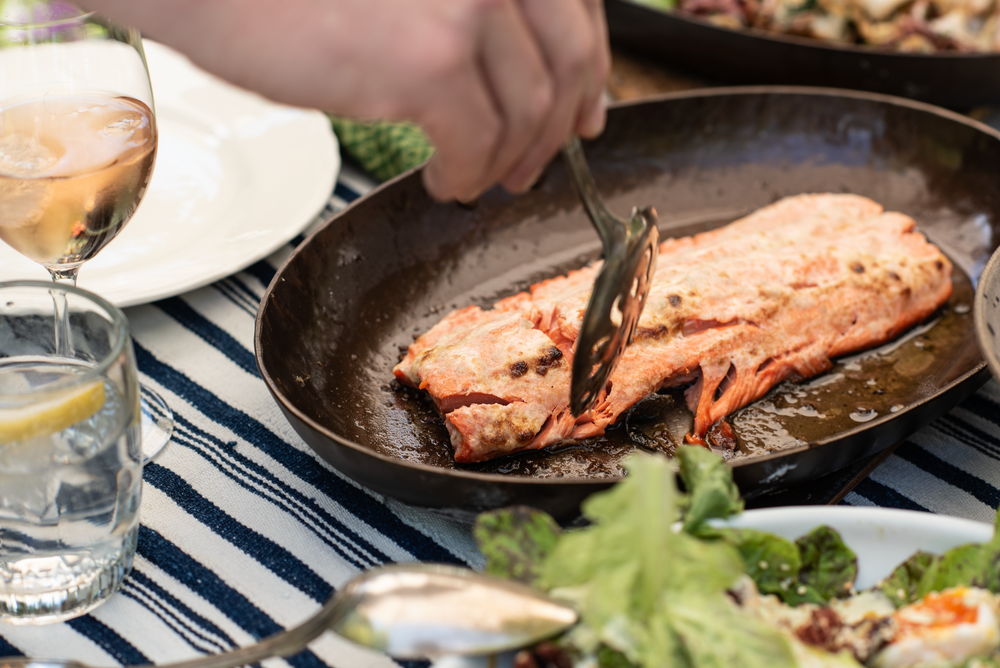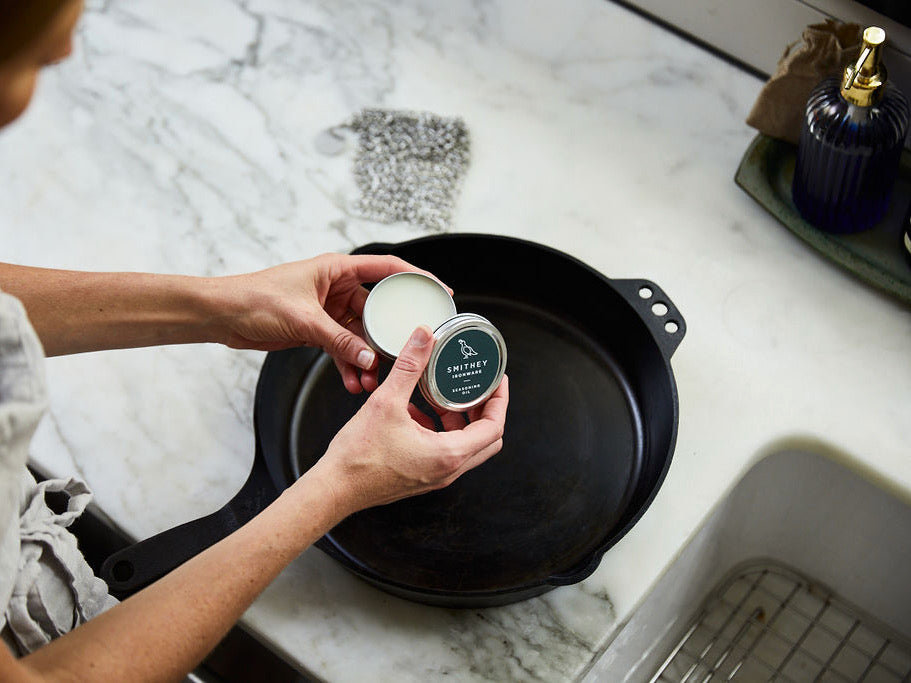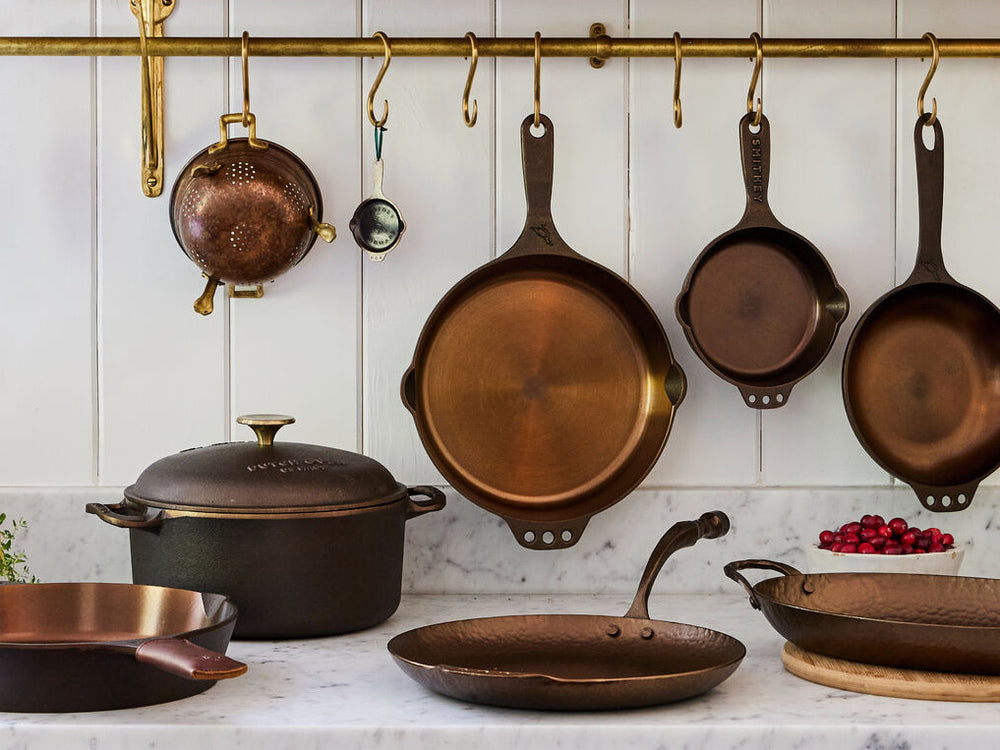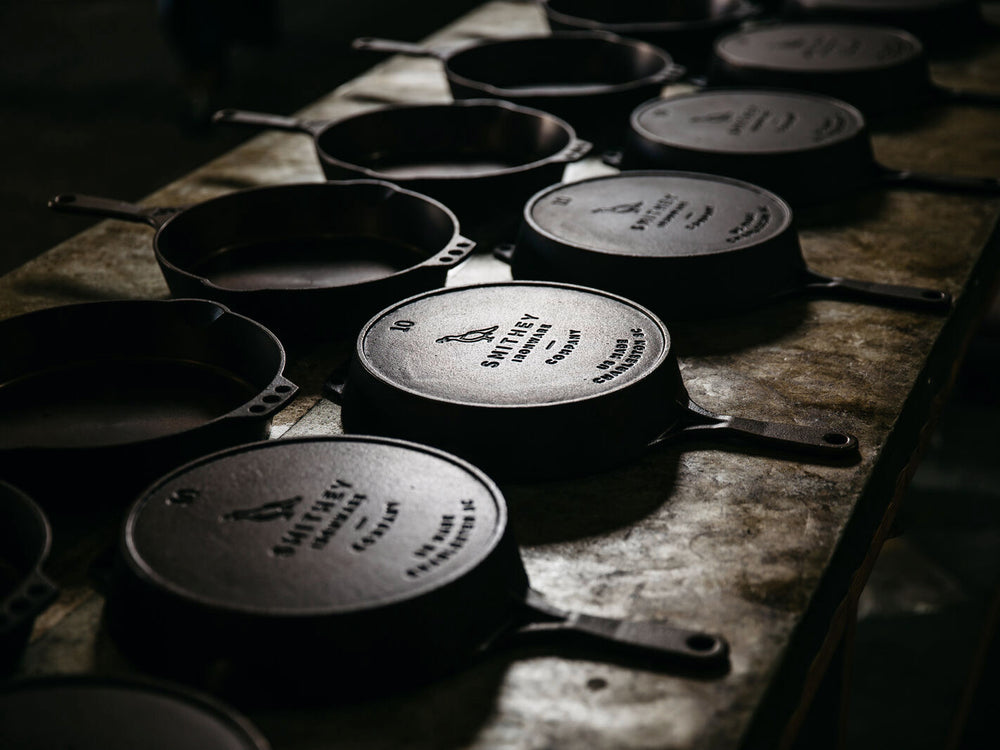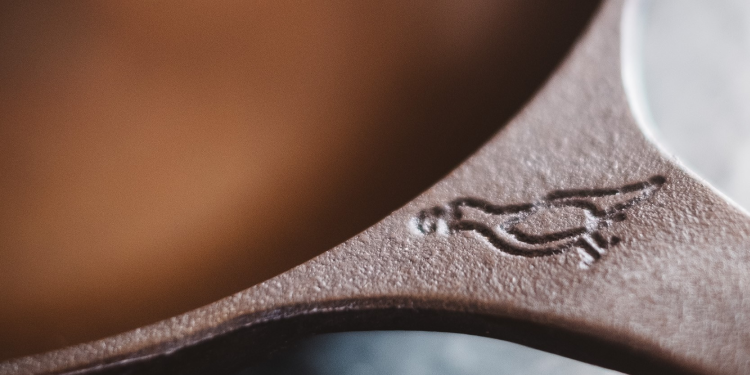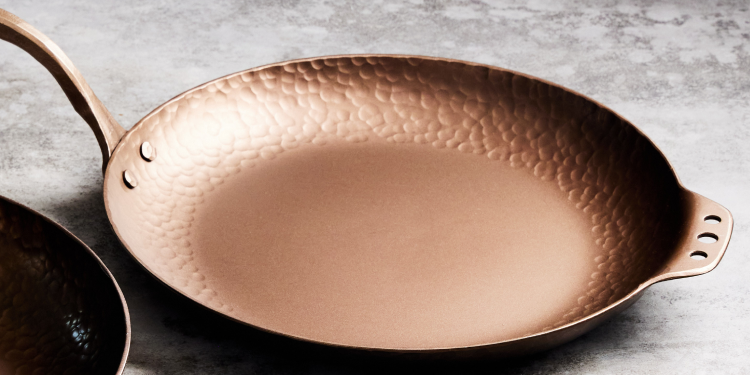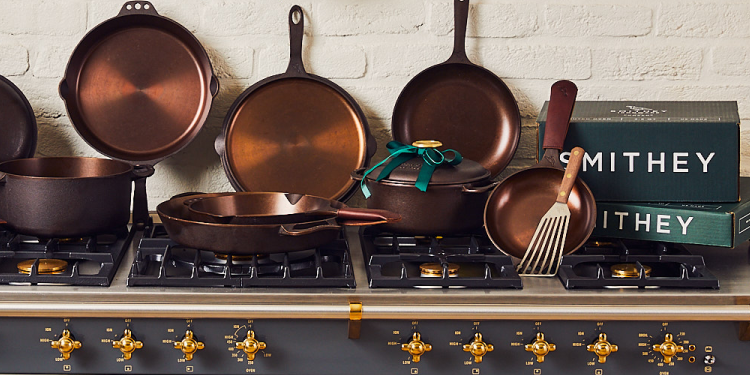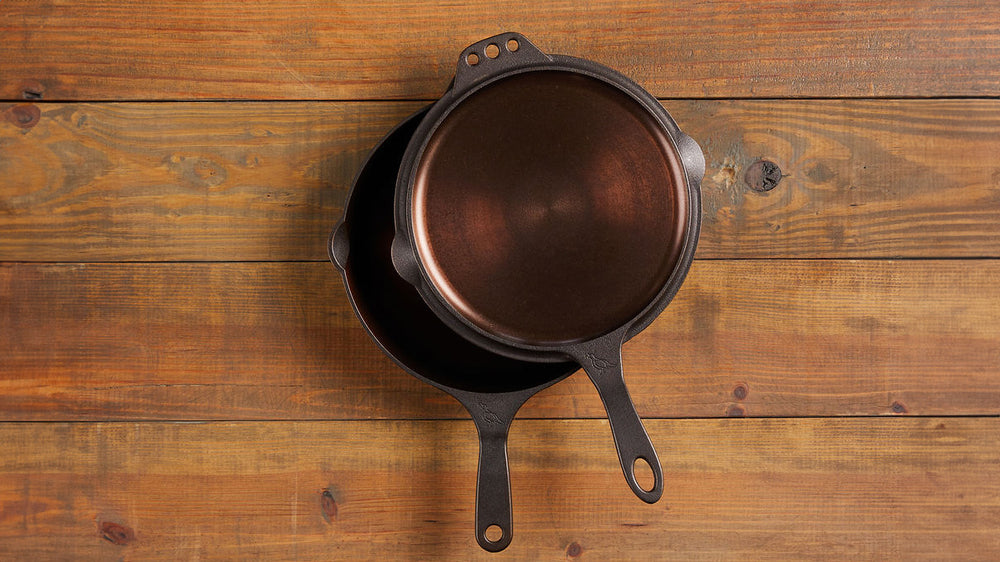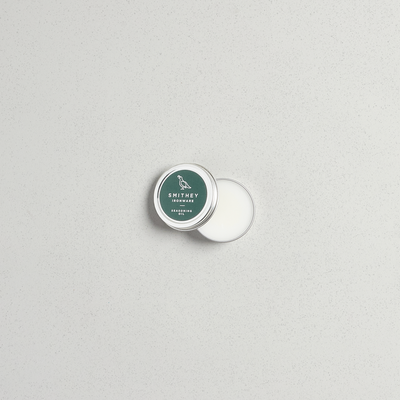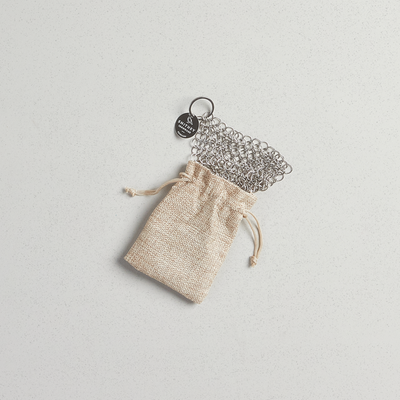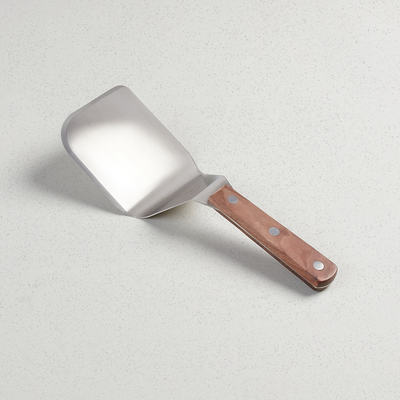Cast of Characters | Annie
Our friend Annie Cole Arthur is a talented Charleston-based blacksmith whose metalworking career was forged from a passion for art blended with a love of science. When she's not putting her hands and hammer to use helping turn our Smithey's limited edition carbon steel Farmhouse Skillets, you can find her advocating for greater diversity in the world of architectural ironwork at large. Below, an introduction to this fearless specialist.
First things first, how long have you been a professional blacksmith?
Three years, two months, and seventeen days.
Down to the day! That level of specificity is reflective of the kind of attention to detail you bring to your work in general, so it’s totally not surprising that you’d answer like that. Tell us the backstory.
Well, I’m originally from Lookout Mountain, Georgia, right on the border between Georgia and Tennessee, but I studied at the American College of the Building Arts here in Charleston. A summer internship was part of the ironwork program I was in (technically it was a Bachelor of Applied Sciences in the building arts with a craft specialization in forged architectural ironwork), and I was able to arrange mine with Bob Thomas, of Robert Thomas Iron Design, who I had just met through his involvement with the school. That was between my junior and senior years of college, and at the end of my internship, Bob told me that if I ever wanted a job after I graduated, I had one with him. And so at the end of my senior year I took him up on the offer and I've been here since.

Have you always been interested in metal and ironwork?
I’ve always loved art, from industrial arts to drafting to woodworking. And I also just really love working with my hands. I love power tools, love loud noises, love getting dirty, anything tactile. When I graduated high school, my plan was to not go to college and to start my life as an artist instead. Naturally, I got a job making minimum wage cooking in a restaurant instead and was absolutely miserable for a year until I decided that I was not the kind of person who just couldn't go to college. I looked at a bunch of programs that spoke to my interests, but when I discovered the blacksmithing track at the American College of the Building Arts, I knew I wanted to do it. Keep in mind that at this point, I didn’t even know what blacksmithing really was. To prepare, I took classes with a local lady before I left home and I was hooked.
Clearly there was a lot emphasis on the applied training and learning as you went along to get where you are now. Did you know much about traditional American cookware before you started working with us at Smithey?
No. My training and experience was mostly in architectural work—the gates and railings and historic metal detailing you see throughout Charleston. But, during school, I did a project where we made some cooking tools—18th Century–style utensils in the English and American Colonial vein, very utilitarian stuff. But what we do with Smithey is an entirely different set of skills that I had no real knowledge beforehand. I’ve learned so much through the experience, though, and take great pride in that—my hands have hammered and inspected a whole lot of skillets at this point and I love knowing that each one is perfect in its own special way.
What's your favorite part about what you do?
I love looking at my day and the projects ahead and pushing myself to innovate and find ways to do things better, leaner, and more efficiently. That really excites me.
And I'm sure that drive makes you a better artist and blacksmith.
Better and crazier.
Any misconceptions about your craft you’d like to clear up or address?
Something that's really important to me is promoting and fostering diversity in the trade. It's not everyday that you see a woman working as a blacksmith and that fuels my passion, too. You know, people often ask me what it’s like being a woman in what has long been considered a man’s world. And my answer is this: That’s not what I think about on a daily basis at all, or how I see myself when that question is raised. I am a human in the human world, bringing fresh value and perspectives to this field that I love and doing whatever I can to be visible and supportive—basically to be the person that I always needed growing up.

 Skip to content
Skip to content
